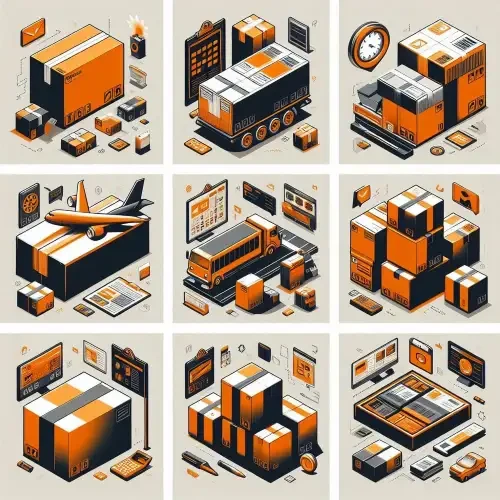Fragile Products: For glass, ceramics, or delicate electronics, choose foam inserts, bubble wrap, or specially designed protective boxes.
Food Products: Use leak-proof, hygienic packaging that complies with food safety standards.
Textile Products: Opt for soft and lightweight packaging; bags or foldable boxes are excellent choices.
Proper Sizing: Select packaging that fits the product to minimize empty space. This helps reduce shipping costs.
Weight: Choose lightweight yet durable materials to lower transportation and shipping expenses.
Cushioning Materials: Use foam, air pillows, or bubble wrap to secure products inside the box.
Water Resistance: For outdoor deliveries, prefer waterproof packaging to protect the contents.
Eco-Friendly Materials: Use recyclable or biodegradable materials to support environmental sustainability and build a green brand image.
Minimized Packaging: Avoid unnecessary layers. Using less material reduces both environmental impact and cost.
Custom Designs: Offer a unique customer experience with branded packaging tailored to your business.
Labeling: Add clear labels with your logo and product details to strengthen your brand presence.
Budget Planning: Define packaging costs and align them with your e-commerce strategy.
Bulk Purchasing: Buying packaging materials in bulk can help reduce unit costs significantly.
Easy to Open: Ensure that the packaging is easy to open for a smooth unboxing experience.
Gift-Ready Packaging: Offer elegant packaging options for customers purchasing gifts.
Durability in Transit: Ensure packaging is strong enough to protect products during shipping. High-quality materials improve delivery safety.
Tracking and Labeling: Include tracking labels on the package to streamline logistics and enhance visibility.
This guide will help you choose the most suitable packaging for your e-commerce products. Make informed decisions at each step to protect your items and improve customer satisfaction.
